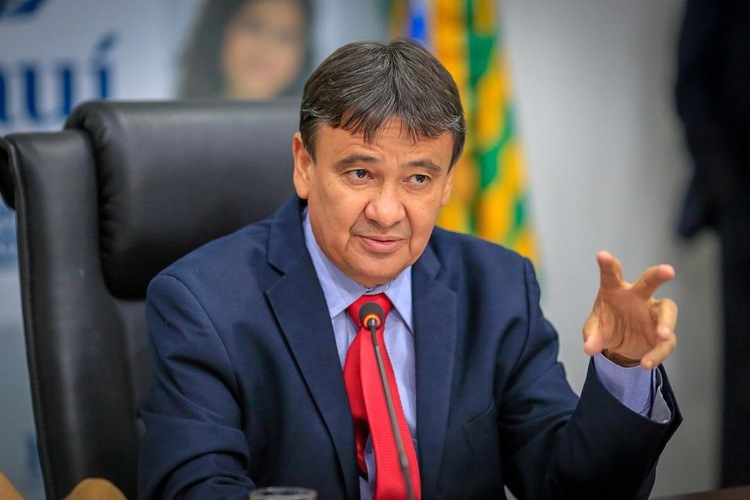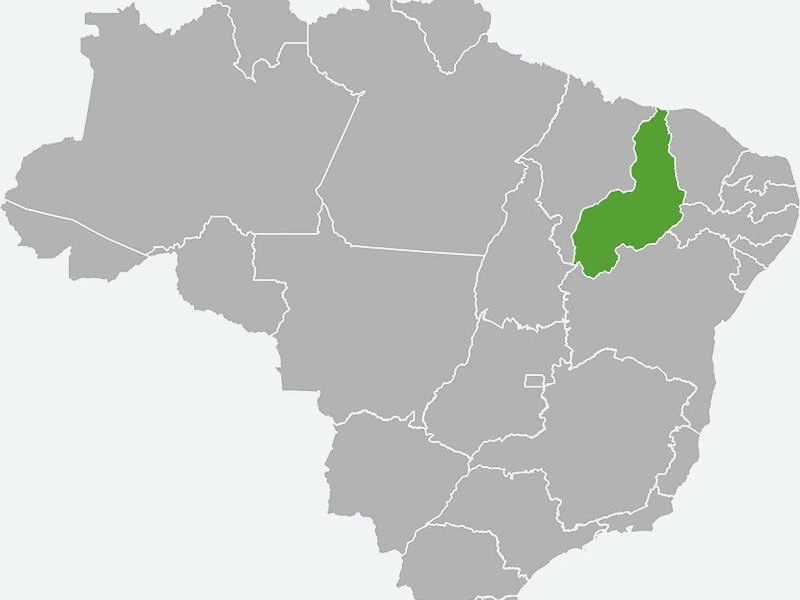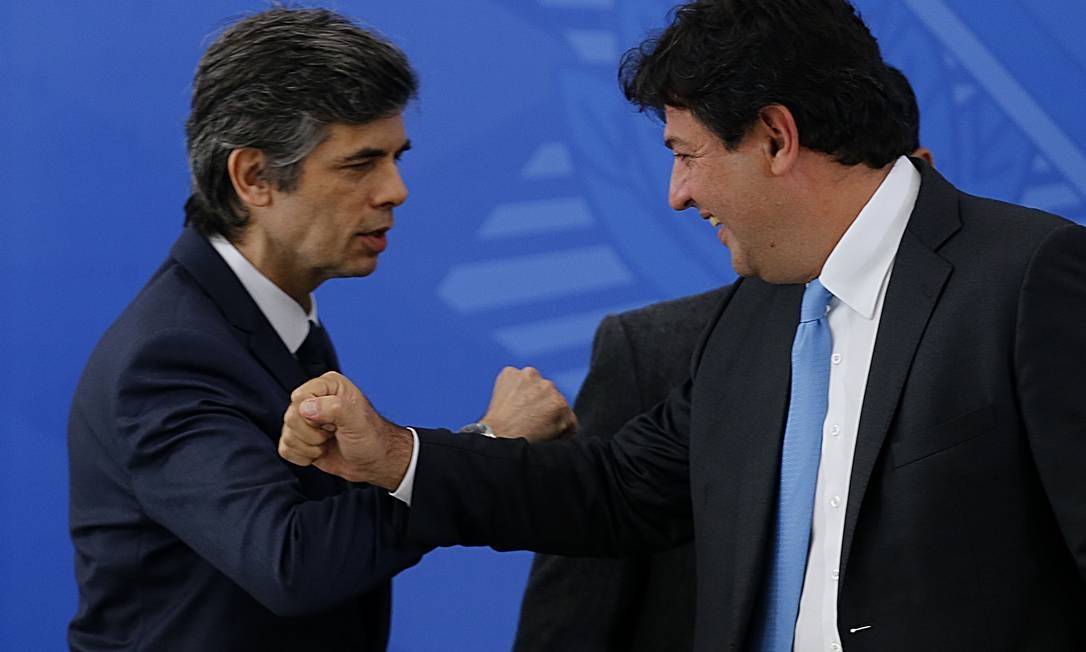08RIO DE JANEIRO, BRAZIL – Wellington Dias is an experienced politician. He has held elective office for 27 years. Considered one of the leaders of the Workers’ Party (PT) in the Northeast region and governor of Piauí State for the fourth time, he believes that Jair Bolsonaro will not end his term as President of Brazil.

He says Sérgio Moro’s departure from the Ministry of Justice and the resignation of Luiz Henrique Mandetta, and now of Nelson Teich from Health, show that the President is more concerned with the 2022 electoral calendar, when a presidential succession will occur than with tackling the coronavirus pandemic, which by Saturday had recorded 233,142 cases and 15,633 deaths. “Brazil is lacking command”.
Dealing specifically with Mandetta and Teich’s downfalls, the governor of Piaui says that it is science that has lost out. “In my opinion, it wasn’t Minister Mandetta who fell. Minister Nelson Teich was not the one who fell. Science did. Following science in Brazil is banned”.
So far, Piauí has one of the lowest death rates per million inhabitants in Brazil from Covid-19, 18 deaths per million residents. The ranking is led by Amazonas (296), Ceará (155), Pernambuco (136), and Rio de Janeiro (130). The average in Brazil is 67 deaths per million inhabitants. In social isolation since March 18th, the residents of Piauí still have no time set to return to the city’s streets. “I won’t open trade just because,” says the governor.
In the telephone interview with EL PAÍS, Dias says the federal government has not kept its pledge to help states during the pandemic, says he has failed in trusting the aid that would come from the Union and points out that the crisis has already taken 36 percent of his state’s revenues.

Question. You have already been a Deputy and a Senator, you are in your fourth term in the government. What is your assessment? Do you think President Jair Bolsonaro will end his term?
Answer. It won’t be easy for him, as I see it, or for Brazil. Because, more than ever in any period of our Republic, we need a President with the ability to articulate, to integrate. Fighting the Coronavirus by integrating the State, the Municipality, and the Union, the Executive, Legislative, and Judiciary branches, the private sector and with other countries is not easy at any time. Without this ability to articulate, to dialogue. It is impossible.
Q. Could you estimate how long his government will endure?
A. No. I leave that to the Federal Supreme Court, which already has an open case and to the National Congress, which will know how to assess it when the time comes.
Q. What about Nelson Teich’s withdrawal from the Ministry of Health?
A. Minister Teich’s withdrawal represents more than instability. It is a clear position by the central power not to support Ministers who follow science. The current government is not interested in securing the Covid-19 plan drawn up by the Ministry of Health, a technical team, along with the secretaries of state and municipalities, i.e. social isolation as a preventive measure. I also stress the failure to provide adequate treatment. The Government is working to promote the use of chloroquine as the great lifeline, when, in fact, we already have protocols in Brazil that follow science, where physicians have the autonomy to administer the drugs, treatment, and exams that they deem appropriate. In my opinion, it was not Minister Mandetta who fell. It was not Minister Nelson Teich who fell. Science did. Following science in Brazil is banned. The absence of a unified command, of a unified health policy, is what leads Brazil to the fourth position in number of cases of coronavirus and one of the highest mortality rates on the planet. Here in Piauí, we have low mortality indicators because we bet on science and it yields good results.
Q. What is your political assessment of Sérgio Moro’s resignation from the Ministry of Justice?
A. Brazil lacks leadership. The Bolsonaro government is only concerned with the 2022 election. First, he fires the Minister of Health [Luiz Henrique] Mandetta. Then he forces Moro out. All the while keeping an eye on the elections. He is not thinking about the population at any time.
Q. In addition to the resignations of Ministers, what makes you think there is a lack of command?
A. The President is preaching against social isolation, advocating the reopening of businesses with no support for the increase of beds, of ICUs. Without the federal government’s support, we’ll have genocide. We have been recording over 800 deaths in Brazil every day. Shortly, it will reach 1,000.
Q. In your view, in what way does Teich’s resignation affect the fight against the disease?
A. The major issue in the change of two Ministers of Health in such a short time is the insecurity caused for the population. There is a mixed message. It conveys uneasiness. The fact is that these Ministers did not have [the President’s] support. Imagine finding out about a decision made in your area through the press, he was not even consulted. This situation is embarrassing. This is something that causes as big a problem as the pandemic because it places a huge responsibility on governors, mayors, and the private network to have to take on the role of the inoperative federal government. Who is supposed to have an international relationship, going to another country to buy ventilators, test kits, equipment? That was the federal government. And at the same time invest in Brazil so that our scientists could work with the required new equipment and supplies. We have something more threatening in Brazil.

Q. What is more threatening?
A. There is a threat for democracy. Right now it’s in check. There is the need for leaders of the most diverse political currents to be united in the defense of democracy and in the defense of a plan to get Brazil out of this crisis. It is a crisis that shares a common enemy in both health and the economy, the coronavirus. I also want to return to normality, but there is still no vaccine or medicine for the treatment of Covid-19, so we have to deal with the problem as it is and work together.
Q. Are we close to collapse?
A. Yes, because the level of contamination has not stopped growing. The more it grows, the more people demand jobs in highly complex areas that are not available. More and more, capital cities and large cities in Brazil will collapse. This is all happening and the government is dealing with the 2022 electoral strategy. It is unreasonable.
“Without the support of the federal government, we will have genocide.”
– Wellington Dias, governor of Piauí
Q. What did the federal government promise and what did it actually accomplish in the fight against Covid-19?
A. There was a pledge that the government would buy 15 million tests 45 days ago in order to achieve higher testing so that we would find out where people are infected and where they are not. The government had bought 500,000 for the whole of Brazil. Piauí received 7,200 kits. Ventilators were promised, there were 60 for us.
Q. Did those ventilators not arrive?
A. Do you know what the government did? Piauí bought 80 ventilators from a supplier in São Paulo, and the federal government blocked it. We had to go to court because the company told us: “those that were reserved for you have already been taken and we have to produce new ones”. It is unreasonable. In addition to the government failing to buy them, Justice Marco Aurélio Mello [of the Supreme Court] was forced to issue a ruling to ensure we would receive what we bought. He decided the government has to stop blocking equipment purchased by states and municipalities.
Q. What were your estimates of cases at the start of the crisis and what is it now?
A. Look at the magnitude of our challenge. By February the state had around 600 ICU beds and stabilization rooms throughout the whole system to attend to all diseases. Including the public and private sectors. We plan to reach another 500 ICU beds exclusively for Covid-19 in the next 45 days. Of the 600 we already had, we will take 100 for coronavirus. We’re in the throes of a war operation. When we started getting severe hospitalizations, there were three on March 18th, at that time I only had 30 ICU beds available.
Q. With those 30 beds today, you would already be collapsing.
A. Yes. We have now guaranteed 246 and in the first week of May, we will reach 294.
Q. Still far from reaching the 600 specific beds to treat Covid-19. Why is that?
A. The main issue is ventilators. We’ve even managed to get monitors. And we’re also having trouble acquiring medical gases because there are very few suppliers in Brazil. Now, going from 30 available beds to 600 is not a simple task. What is happening here happens in every state. In Piauí, we have an occupation level ranging from 20 to 30 percent of total beds.
Q. Does this occupation mean you are comfortable?
A. No. It means that we still have a little time, a couple of weeks at most, to put our plans into practice. The reality in Brazil, in general, is that we are working in the dark. I have ordered our technicians to go to 15 regions in the State to conduct a statistical sampling test so that I may have a better understanding of the level of contamination in Piauí. I am also testing about 1.5 percent of the population in 224 municipalities. I need to know the extent of this contamination and reduce underreporting. That’s what the whole of Brazil has to do, no doubt.
Q. Given the gravity of the situation, why is it taking so long to act?
A. Because amidst all this, politics is prevailing. What we need to learn is the basic number of reproduction. We need to know how many people are being contaminated by those who have been infected. When we place an ICU, we qualify professionals. We are working with the ICU to provide telemedicine models so that professionals who are not in that specific area can be guided by those who understand the equipment they will be operating.
Q. What about isolation?
A. Social isolation is the most efficient way for me to control the contamination level. We have been conducting research for three consecutive weeks to get a sense of how much isolation is varying here. In my network, the four reliable data are a graph on patients who come in with severe acute respiratory syndrome – which in Piauí has grown 15 times in a year, now it’s 11 times more – the other is to determine the number of places and occupancy, another is the confirmation of cases and, finally, the number of deaths. These are relatively low numbers, with five deaths for every million people.
Q. Nonetheless, there is an underreporting, given that you accept that you need to test more.
A. Yes. I’ve run 1,000 tests for every million people. But I need to run 20,000 for every million. We demanded this from the new Minister of Health [Nelson Teich], he needed to make the plan we submitted to them happen. A month and a half passed and nothing. I didn’t get an ICU, I didn’t get a ventilator, quite the opposite, they took our ventilators.
Q. What is your responsibility?
A. I have just passed a R$295 million budget for the Piauí pandemic and I am looking for a new credit operation for a further R$100 million. Let me explain. A housewife learns at the last minute that she will have to host a large number of her relatives for lunch. So you better cook extra food rather than go short. Only here, we’re dealing with life. I need to have an even greater capacity than reality. I’m buying beds from private hospitals, building field hospitals. We were able to attend Covid-19 patients in seven regions. Now we’re up to 34. We still have a low bed occupancy situation, but I understand that as my neighbors, Maranhão, Ceará, Pernambuco, are heading toward a critical situation, I may be affected too.
Q. To what do you attribute these low rates so far?
A. We are reaching good social isolation rates. We have also implemented specific isolation measures. People who come in through airports, highways, railways are forced to be quarantined for at least seven days. Those who also come into contact with someone infected must be isolated.
Q. But isolation rates in Piauí have dropped. It has reached 70 percent, according to the Inloco company. Now it’s around 50 percent. Why has it dropped? Did you relax the rules?
A. All this pressure from the President of the Republic has an impact on Piauí. And everywhere. It encourages sympathizers, it encourages people in business to react against it. Unfortunately, this is a battle. I’ve had good support from both the prosecutor’s office and the judiciary, I’d say 99 percent of mayors are also committed. But the pressure has been very great here, we face several battles to prevent it from growing.
Q. What is the economic impact for the state?
A. It will be huge. Sixty percent of our economy is services. Much of that service is trade. Our main revenue comes from the [Tax on circulation of goods and services] ICMS. Social isolation was ordered in this sector, in trade. We’ve already had 36 percent less revenue than we did in the same period last year. The problem is that we are only being compensated by the State Participation Fund, which is a lower revenue. So, this bill in Congress for ICMS compensation is crucial for states and municipalities. I am preparing for three things. We want to achieve a low contamination rate, R1, when a person infects at most one more person. We want to reduce the number of people with respiratory syndrome in our network. As well as the number of places versus occupation. And we also look at the number of areas with the most notifications.
Q. Is there a recovery plan, a reopening of trade?
A. We need to achieve a higher number of tests, encourage the use of the thermometer to check the temperature, distribute masks, and analyze all the other indicators I mentioned earlier. Now, after the coronavirus, we’re going to live an afterwar. We need a strategy to rebuild the economy. I have already submitted a request for two credit operations to the Legislative Assembly, showing that the State is willing to go into debt in order to be able to assist economic sectors to carry out road recovery works, to support family agriculture, tourism, small businesses. I want to couple public and private investments, but this plan is still in its infancy. I am not going to open trade just for the sake of it. I am aware that Piauí is inside Brazil and Brazil is still in a stage of sharp coronavirus growth.
Q. Where did you fail in this process to try to control the pandemic? How are you self-critical?
A. At first we followed what the World Health Organization said. The WHO said that you should have three clinical beds for each ICU bed. Looking at it today, the main demand for Covid-19 is for an ICU bed. We should have invested more in that before. So much so that now we’ve revised this. We’re setting this target of 600 ICU beds for 1,000 clinical beds. The second self-criticism is that we have waited a long time, more or less between March 18th and April 10th, for the federal government’s support. Every day they said it would come tomorrow. And this ended up hindering us. Because when we took action everything was already harder. A ventilator we used to buy for US$18,000, nowadays it’s bought for US$40,000. There are now people asking for US$60,000. It’s become a senseless auction. Even inhumane. We’ll have to deal with that.
Source: El País

